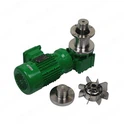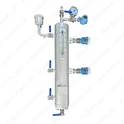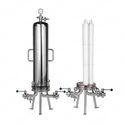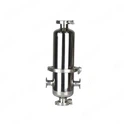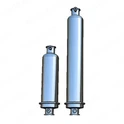Filters are an important component in food manufacturing, serving to separate unwanted materials from food products. There are many different types of filters that can be used in the food manufacturing process, each with their own unique features and benefits. Some of the most common types of filters used in food manufacturing include membrane filters, cartridge filters, and bag filters.
Membrane filters are made up of a thin, porous material that allows liquid and gas to pass through while trapping contaminants. These filters are often used to remove bacteria, viruses, and other microorganisms from liquids such as water or juice. They can also be used to filter oils and fats, as well as to clarify wine and beer.
Cartridge filters are another type of filter commonly used in food manufacturing. They are designed to remove sediments, particulates, and other solids from liquids such as fruit juices, vegetable oils, and sugar syrups. Cartridge filters come in a variety of sizes and materials, including polypropylene, nylon, and fiberglass.
Bag filters are typically used to remove larger particles from liquids such as cooking oil or wastewater. They are made from a porous fabric that allows liquid to pass through, while retaining particles larger than the pore size. Bag filters are effective at filtering out contaminants such as dirt, sand, and rust.
Regardless of the type of filter used, it is important to select the appropriate filter for the specific application. Filters must also be maintained and replaced on a regular basis to ensure proper functioning and prevent contamination of the food product. With proper use and maintenance, filters play an important role in ensuring the safety and quality of food products.

